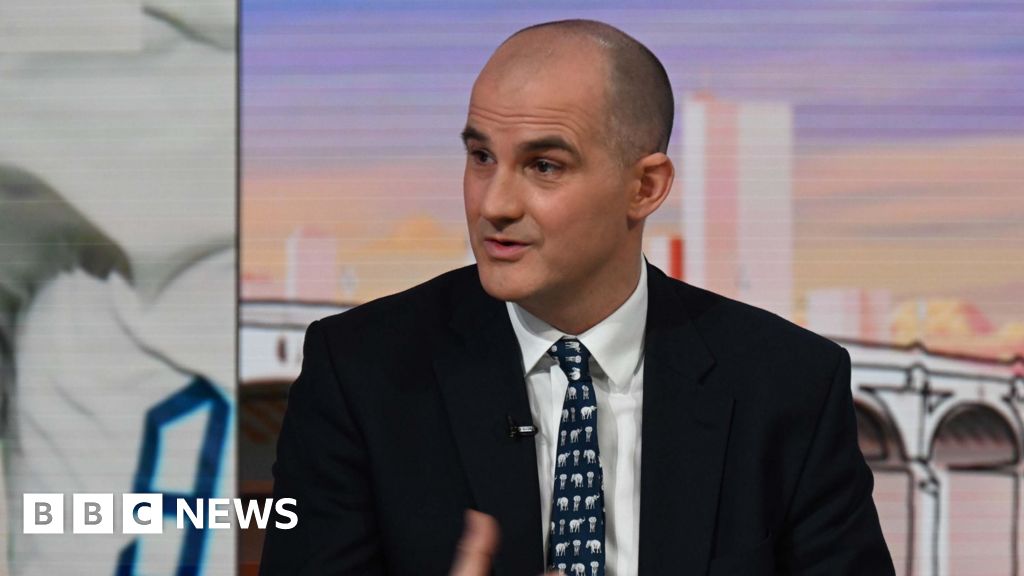PROTECT YOUR DNA WITH QUANTUM TECHNOLOGY
Orgo-Life the new way to the future Advertising by AdpathwayPolitical posturing over migration has delivered yet another blow to Europe’s beleaguered free-travel zone.
Faced with right-wing demands at home to control the flow of people arriving from outside the EU’s borders, the leaders of Poland and Germany are seeking easy wins which might placate populists — but put the once-sacred Schengen area on life support.
Warsaw’s patience with Germany sending migrants back to Poland “is becoming exhausted,” Polish Prime Minister Donald Tusk said, as he announced the imposition of checks on his country’s borders with Germany and Lithuania from July 7.
Almost four decades after the introduction of the borderless travel area that encompasses 450 million people from 29 countries — four of which aren’t in the EU — supposedly temporary border controls in the name of exceptional security concerns are increasingly the norm, creating the impression Schengen exists more in name than in substance.
But with the rise of far-right parties and several years of migration from Ukraine — and before that, the Middle East — carveouts to the border-free zone rules have become an easy solution for politicians looking to show they mean action.
“We consider the introduction of controls necessary,” Tusk said, pointing the finger at Germany’s “unilateral” action.
In May, the conservative-led government of Chancellor Friedrich Merz ramped up checks on Germany’s borders, including with Poland, following pressure from Berlin’s own opposition party, the far-right Alternative for Germany (AfD).
 Warsaw’s patience with Germany sending migrants back to Poland “is becoming exhausted,” Polish Prime Minister Donald Tusk said. | Rafal Guz/EPA
Warsaw’s patience with Germany sending migrants back to Poland “is becoming exhausted,” Polish Prime Minister Donald Tusk said. | Rafal Guz/EPAGerman police will turn away more undocumented immigrants, including asylum-seekers, Merz said. The move further bolstered border controls the previous government had already put in place October 2023.
The crackdown riled Germany’s neighbors, including Poland, despite Merz’s promises to step up Berlin’s relationship with Warsaw — an alliance he considers key for driving a united European defense policy.
While politicians have warned Germany’s controls could chip away at the free movement of people and goods within the Schengen area, critics have also called the border measures largely symbolic.
Poland’s Fakt newspaper said that German authorities returned 1,087 people to Poland between May 1 and June 15 this year, pointing out that those numbers aren’t significantly different from last year’s.
According to German police union figures, the new checks led to 160 asylum applicants being rejected in the first four weeks. It’s a small fraction of total refusals — on average, up to 1,300 people per week are rejected for lacking the necessary documentation.
Germany’s move, however, has created a political problem for Tusk’s ruling centrist Civic Coalition.
Having narrowly lost the presidential election to the populist Law and Justice (PiS) party, it’s feeling the hot breath of right-wing opposition parties that want a tougher stance on migration. Civic Coalition and PiS are currently neck-and-neck in POLITICO’s Poll of Polls and the hard-right Confederation has surged since the last general election in 2023.
Polish civilian vigilante groups tied to right-wing parties are staging patrols along the frontier with Germany.
“Poland’s western border is ceasing to exist,” Mariusz Błaszczak, a senior PiS politician, warned last week. He blamed Tusk’s “servility toward Berlin.” Sławomir Mentzen, a Confederation leader, accused the Polish Border Guard of cooperating with Germany in accepting illegal migrants.
The government has denounced those attacks. “Don’t play politics with Poland’s security. This is not the time or place for such actions,” Tomasz Siemoniak, Poland’s interior minister, said on X.
Poland’s retaliatory controls have also put Merz’s border policy in the firing line, with Germany’s left-wing opposition painting Warsaw’s decision as a clear setback.
“This is a devastating signal for a German government and a ‘foreign chancellor’ Merz, who promised to regain trust in Europe,” Chantal Kopf, a lawmaker for the Greens, told POLITICO.
Knut Abraham, a member of Merz’s conservatives and the government’s coordinator for the German-Polish relationship, in an interview with Welt also warned against lasting checks. While they are “necessary as a political signal that migration policy in Germany has changed … the solution cannot be to push migrants back and forth between Poland and Germany or to cement border controls on both sides,” he said.
Merz on Tuesday defended Germany’s border checks.
“We naturally want to preserve this Schengen area, but freedom of movement in the Schengen area will only work in the long term if it is not abused by those who promote irregular migration, in particular by smuggling migrants,” he said.


 1 week ago
3
1 week ago
3










 English (US) ·
English (US) ·  French (CA) ·
French (CA) ·  French (FR) ·
French (FR) ·